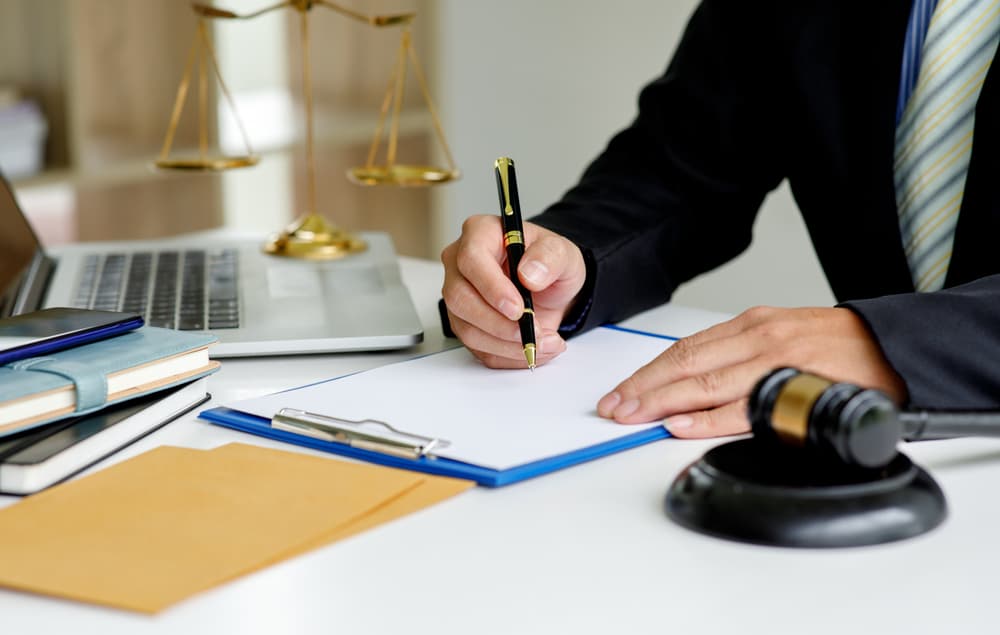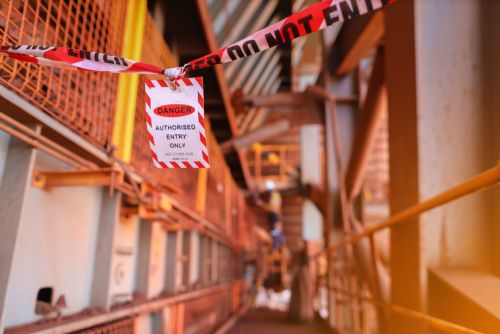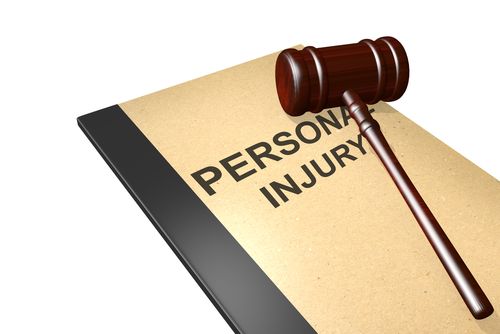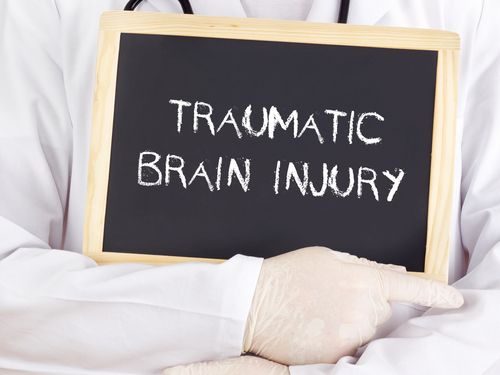To make the most of your free case evaluation with a personal injury lawyer, you should bring any and all documents detailing the accident, your medical treatment, and your financial losses, from police reports and hospital bills to photos and pay stubs.
We know that after a serious accident, organizing a pile of paperwork is the last thing you want to do while coping with physical pain and emotional trauma. But your first meeting with an attorney shouldn’t add to your stress; it is the first concrete step toward lifting that heavy burden from your shoulders.
We’re here to help you understand what to bring with you to your free case evaluation, why it’s important, and what to do if you can’t find everything.
The Goal of Your First Meeting: A Two-Way Conversation

Before we dive into the documents, it’s important to understand the purpose of this initial meeting. It’s not just for the lawyer to evaluate your case; it’s for you to evaluate the lawyer and the firm. You are looking for a skilled professional, but also a compassionate advocate who listens to you, understands your suffering, and makes you feel seen and heard.
During this conversation, the attorney will be listening for key facts to determine three things:
- Liability: Who was at fault for your injury?
- Damages: What are the full extent of your injuries and losses (physical, financial, and emotional)?
- Causation: Is there a clear link between the at-fault party’s actions and the damages you suffered?
The documents and information you bring help to build the factual foundation for these three pillars. The more organized and thorough you can be, the clearer the picture becomes, allowing the attorney to give you a more accurate assessment of your claim’s strength and potential value.
The Essential Checklist: What to Gather for Any Personal Injury Claim
While every case is unique, a core set of documents provides the essential framework for nearly all personal injury claims. Don’t worry if you don’t have every single item on this list. The most important thing you bring is your story. A good law firm has the resources to help you track down missing paperwork.
Category 1: Information About the Incident Itself
This section is all about capturing the “who, what, when, where, and how” of the accident.
- Accident or Incident Report: This is often the most critical initial document. For a car crash, this is the police report. For a slip and fall at a business, it might be an internal incident report you filled out. This report establishes a formal record of the event, often identifying parties and witnesses.
- Photos and Videos from the Scene: In today’s world, a picture is truly worth a thousand words. If you or someone else was able to take photos or videos at the scene, they are invaluable. This could include photos of vehicle damage, the hazardous condition that caused a fall (like a wet floor or broken stairs), or the general surroundings. The visual context can be incredibly powerful.
- Contact Information for Everyone Involved: This includes the names, phone numbers, addresses, and insurance information for any other drivers, property owners, or individuals directly involved in the incident.
- Witness Information: If anyone saw what happened, their testimony can be crucial. Bring a list of any witnesses with their names and contact information. Independent third-party accounts can powerfully corroborate your version of events.
Category 2: Proof of Your Injuries and Medical Treatment
This documentation helps to establish the severity of your physical harm and connects it directly to the incident.
- A Comprehensive List of Medical Providers: Create a list of every doctor, specialist, physical therapist, chiropractor, and hospital you have visited in relation to your injuries. Include their names, addresses, and phone numbers.
- Medical Records: While your attorney will ultimately request your complete medical file, bringing what you already have is a great start. This includes hospital discharge papers, summaries of doctor’s visits, surgical reports, and diagnostic test results (like X-rays, MRIs, or CT scans).
- Photographs of Your Injuries: Just as photos of the scene are important, photos of your injuries are vital. Take pictures of your bruises, cuts, casts, and stitches shortly after the accident and periodically throughout your recovery. This visual timeline can powerfully demonstrate your pain and suffering in a way that medical jargon cannot.
- Medical Bills, Invoices, and Receipts: Start a dedicated folder for every single medical bill you receive. This includes hospital stays, ambulance rides, doctor’s appointments, prescription medications, and medical devices (like crutches or a brace). These documents are the foundation for calculating your “economic damages”—the tangible financial costs of your injury.
Category 3: The Financial and Economic Impact
A serious injury affects more than just your body; it can devastate your financial stability. Documenting these losses is a key part of ensuring you are made whole.
- Proof of Lost Wages or Income: Your injuries may have forced you to miss work, resulting in lost income. Bring recent pay stubs to show your rate of pay and a letter from your employer detailing the dates you missed and the total income you lost. If your ability to work in the future is compromised, your attorney will need this information to project future lost earnings.
- Records of Out-of-Pocket Expenses: Keep receipts for any expenses you incurred because of your injury. This could be anything from prescription co-pays and parking fees at the hospital to the cost of hiring someone for childcare or lawn care because you were physically unable to do it yourself. No expense is too small to document.
- Property Damage Estimates and Receipts: If your personal property was damaged—most commonly your vehicle in a car accident—bring all repair estimates, invoices for completed repairs, and photos of the damage.
Category 4: Insurance Information and Correspondence
Your interactions with insurance companies are a critical piece of the puzzle.
- Your Own Insurance Policies: Bring a copy of your own auto, health, and/or homeowner’s insurance policies. Your attorney will need to review them to understand what coverages may be available, such as No-Fault benefits (Personal Injury Protection or “PIP”) or Supplemental Underinsured/Uninsured Motorist (SUM) coverage.
- All Communication with Insurance Companies: Bring any letters, emails, or notes from conversations you’ve had with any insurance adjuster, whether from your own company or the at-fault party. Crucially, if you have not given a recorded statement to the other party’s insurance adjuster, do not do so before speaking with an attorney. These statements can be used against you, and it’s wise to have legal counsel before providing one.
What if I Don’t Have Everything?
After reading this long list, you might feel anxious, thinking, “I don’t have half of this.” Please, take a deep breath. It is okay. These are recommendations, not requirements.
The single most important thing you can bring to your free case evaluation is yourself and your story. You are the primary witness. Your memory and your experience are the starting point for everything. A dedicated personal injury law firm has the staff, investigators, and resources to help you obtain police reports, track down medical records, and uncover crucial evidence.
Your job is to focus on your recovery. Let your legal team focus on building your case.
Frequently Asked Questions About Personal Injury Claims
It’s natural to have more questions, and we’ve gathered answers to some of the most common concerns we hear from our clients.
How much does it cost to hire a personal injury lawyer?
You pay absolutely nothing upfront. At Rosenberg & Gluck, LLP, we handle personal injury cases on a contingency fee basis, which means our fee is a percentage of the financial recovery we secure for you. If we do not win your case through a settlement or a trial verdict, you owe us no attorney’s fees. This approach allows you to access high-quality legal representation without any financial risk, even when you are out of work and facing mounting bills. We advance all the costs of litigation, from filing fees to expert witness expenses, so you can focus entirely on your health and recovery.
How long will my personal injury case take to resolve?
The timeline for a personal injury case can vary significantly, as each situation is unique. A straightforward case might be resolved in a matter of months, while a more complex case involving severe injuries or disputed fault could take a year or longer. Factors that influence the timeline include the severity of your injuries and the length of your medical treatment, the willingness of the insurance company to negotiate fairly, and whether it becomes necessary to file a lawsuit and proceed toward trial.
What if I had a pre-existing injury before this accident?
This is a very common concern, and it does not prevent you from having a valid claim. The law recognizes that an at-fault party is responsible for any harm they cause, which includes aggravating, worsening, or re-injuring a pre-existing condition. For example, if you had a manageable chronic back issue that has now become debilitating because of a car accident, the negligent driver is responsible for that worsened condition. It is crucial to be completely honest with your attorney about your prior medical history so we can effectively demonstrate to the insurance company or a jury exactly how the recent accident has negatively impacted your health and quality of life.
What is my role and responsibility after I hire a lawyer?
Once you have entrusted your case to us, your most important job is to focus on your recovery. This means following your doctors’ orders, attending all medical and physical therapy appointments, and doing everything you can to get better. Your secondary role is to be our partner in communication. We ask that you keep us updated on your medical treatment, let us know if your doctors refer you to new specialists, and forward any bills or correspondence you receive related to the accident.
Finally, we will ask you to refrain from speaking with the other party’s insurance company and to avoid posting about your accident or your recovery on social media, as this can unfortunately be used against you. Let us handle the legal burdens so you can concentrate on healing.
How a Dedicated Personal Injury Firm Can Help

When you have suffered injuries in an accident, you need more than just a lawyer; you need a team of advocates who will stand by your side, handle the complexities, and fight for the full and fair compensation you deserve.
At Rosenberg & Gluck, LLP, we focus all of our attention on personal injury law. This isn’t just one of many things we do; it is the only thing we do. This singular focus has allowed our lawyers to cultivate over 100 years of combined experience, developing a deep understanding of the strategies needed to succeed for our clients on Long Island and throughout New York.
We know the local courthouses, the judges, and the defense attorneys. We have the financial resources to take on the largest insurance companies, advancing the high costs of litigation so you pay nothing upfront. We prepare every case as if it will go to trial, a strategy that often leads to better settlement offers because the opposition knows we are ready to fight.Your initial case evaluation is always free and comes with no obligation. It is your opportunity to get answers, understand your rights, and feel the relief of putting your problem in capable hands. Don’t let uncertainty hold you back. Contact Rosenberg & Gluck, LLP today at (631) 451-7900 or through our online form to take the first step toward getting your life back on track.








